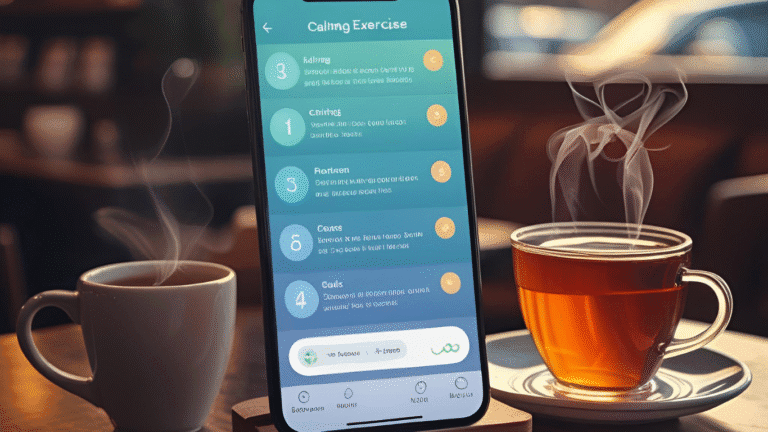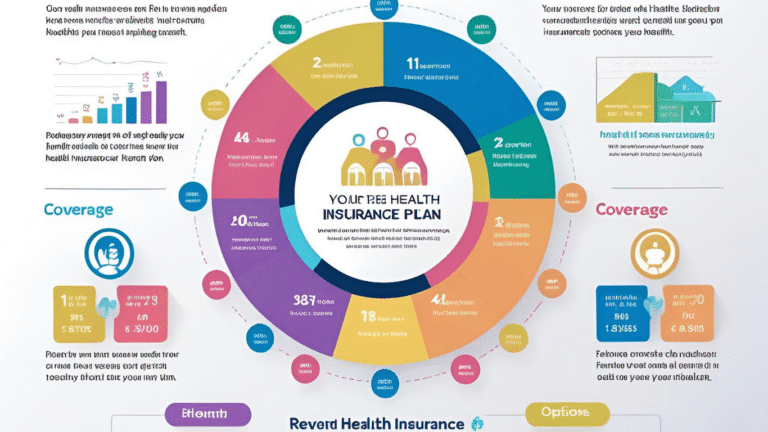Sleep Hygiene: Why Americans Are Chronically Tired
How Better Sleep Habits Can Restore Your Energy, Focus, and Health
Are you constantly tired, even after a full night in bed? You’re not alone. Millions of Americans drag themselves through the day fueled by caffeine and sheer willpower, wondering why they still feel exhausted. The answer often lies in poor sleep hygiene — a set of behaviors and environmental factors that deeply influence the quality of our sleep.
Let’s explore why so many Americans are sleep-deprived, and how improving your sleep hygiene can help you wake up feeling refreshed, focused, and ready to take on the day.
The U.S. Sleep Crisis: A Growing Problem
According to the Centers for Disease Control and Prevention (CDC), one in three adults in the U.S. does not get the recommended 7–9 hours of sleep per night. Even worse, many of those who do sleep long enough still feel unrested due to fragmented or low-quality sleep.
Factors Driving Chronic Fatigue in America:
- Long work hours and shift work
- Late-night screen time and digital overstimulation
- High stress, anxiety, and mental overload
- Caffeine and alcohol use close to bedtime
- Noise, light, and temperature disruption in the sleep environment
What Is Sleep Hygiene?
Sleep hygiene refers to the daily habits, routines, and environmental factors that influence how well you fall asleep, stay asleep, and feel after waking up.
It includes things like:
- Your bedtime routine
- Your bedroom environment
- Your daily habits, such as exercise, screen use, and diet
Good sleep hygiene = better quality sleep = better mood, health, and performance.
Signs of Poor Sleep Hygiene
If you’re experiencing any of the following regularly, your sleep habits may need a reset:
- Difficulty falling or staying asleep
- Feeling groggy despite 7+ hours of sleep
- Frequent waking during the night
- Over-reliance on caffeine or naps
- Trouble focusing or regulating mood during the day
The American Lifestyle vs. Healthy Sleep
1. “Always On” Culture
Work emails, social media notifications, and news updates flood our devices around the clock, creating a nonstop stream of information and demands. For many Americans, this constant connectivity means their minds rarely get a true break. Instead of winding down at the end of the day, our brains remain in a heightened state of alertness, constantly processing new stimuli and reacting to incoming messages. This perpetual engagement can make it extremely difficult to “power down” and transition into a restful state, disrupting our ability to relax and fall asleep naturally. Over time, this ongoing mental stimulation contributes to chronic stress and exhaustion, further worsening sleep quality and overall well-being.
2. Blue Light and Screen Use
Smartphones, laptops, and televisions emit blue light, a high-energy wavelength that interferes with the production of melatonin — the hormone responsible for signaling to your brain that it’s time to wind down and prepare for sleep. Exposure to this artificial blue light, especially in the evening hours, can delay the onset of sleep, reduce overall sleep quality, and disrupt the natural circadian rhythm that regulates your body’s internal clock.
3. Late Dinners, Alcohol, and Stimulants
Consuming heavy meals or alcohol close to bedtime can significantly disrupt REM sleep, the critical stage of the sleep cycle responsible for emotional regulation and memory consolidation. Alcohol may initially make you feel drowsy, but it interferes with the natural progression of sleep stages, leading to fragmented and less restorative rest. Similarly, caffeine—found not only in coffee but also in tea, soda, and chocolate—can remain in your system for up to eight hours, making it harder to fall asleep and reducing overall sleep quality. Both substances can interfere with your body’s ability to achieve deep, restorative sleep, leaving you feeling tired and unrested the next day.
4. Irregular Sleep Schedules
Waking up early, such as at 6 a.m. during the workweek, then sleeping in until noon on weekends can seriously confuse your body’s internal clock, known as the circadian rhythm. This irregular sleep schedule creates a phenomenon called “social jet lag,” where your body struggles to adjust to drastically different sleep and wake times between weekdays and weekends. Much like traveling across time zones, this inconsistency disrupts your natural sleep-wake cycle, leading to feelings of fatigue, difficulty concentrating, and impaired mood. Maintaining a consistent sleep schedule—even on days off—is key to supporting healthy circadian rhythms and better overall sleep quality.
10 Tips to Improve Sleep Hygiene
Here are science-backed ways to reset your sleep and feel more energized:
1. Stick to a Consistent Sleep Schedule
Aim to go to bed and wake up at the same time every day, including weekends. Consistency helps regulate your body’s internal clock, making it easier to fall asleep at night and wake up feeling refreshed. While it might be tempting to sleep in on days off, maintaining a steady schedule supports a healthy circadian rhythm and reduces the risk of “social jet lag,” which can leave you feeling groggy and out of sync. Over time, this simple habit can improve your overall sleep quality and daytime energy levels.
2. Establish a Wind-Down Routine
To prepare your body for restful sleep, try turning off screens and dimming the lights 30 to 60 minutes before bedtime. The blue light from devices like phones, tablets, and TVs can interfere with melatonin production, so stepping away helps your brain wind down naturally. During this quiet time, engage in calming activities such as reading a book, journaling your thoughts, or practicing gentle stretching or meditation. These soothing habits signal to your body that it’s time to relax, making it easier to fall asleep and enjoy deeper, more restorative rest.
3. Make Your Bedroom Sleep-Friendly
Creating a comfortable sleep environment is essential for restful nights. Keep your bedroom cool—ideally between 60 and 67°F—as cooler temperatures help signal to your body that it’s time to sleep. Use blackout curtains or wear an eye mask to block out any disruptive light, which can interfere with your natural sleep cycle. If noise is an issue, consider adding white noise machines or using earplugs to create a quiet, peaceful atmosphere. Finally, investing in a quality mattress and pillow tailored to your comfort needs can make a huge difference, supporting proper body alignment and reducing discomfort that might otherwise wake you up.
4. Avoid Caffeine After 2 PM
Caffeine can stay in your system for several hours—sometimes up to 8 hours—making it harder to fall asleep at night. To protect your sleep, try switching to herbal tea or decaffeinated drinks in the afternoon and evening. These caffeine-free alternatives can help you stay hydrated and relaxed without disrupting your natural sleep cycle, making it easier to wind down when bedtime comes.
5. Limit Alcohol and Heavy Meals at Night
While alcohol might initially make you feel sleepy, it actually disrupts the later stages of your sleep cycle, particularly REM sleep, which is crucial for memory and emotional health. To promote better rest, try to eat dinner at least 2 to 3 hours before bedtime. This gives your body enough time to digest, reducing the risk of discomfort or disrupted sleep caused by heavy meals or alcohol close to bedtime.
6. Move Your Body During the Day
Regular exercise is a proven way to improve sleep quality by reducing stress and helping your body feel more tired at night. However, it’s best to avoid vigorous workouts within 2 to 3 hours before bedtime, as intense physical activity can increase heart rate and adrenaline levels, making it harder to fall asleep. Instead, aim to finish your exercise routine earlier in the day or try gentler activities like yoga or stretching in the evening to promote relaxation.
7. Get Sunlight Exposure Early in the Day
Exposure to natural light, especially in the morning, plays a vital role in regulating your body’s internal clock—known as the circadian rhythm. This natural light helps signal to your brain when it’s time to be awake and alert, improving your sleep-wake cycles. Getting regular sunlight during the day can boost your mood, increase daytime energy, and help you fall asleep more easily at night, leading to better overall sleep quality.
8. Use the Bed for Sleep (and Sex) Only
Avoid working, watching TV, or scrolling on your phone while in bed. These activities stimulate your brain and can create associations between your bed and alertness rather than relaxation. For better sleep, your brain needs to link the bed exclusively with rest and sleep. Keeping work and screen time out of the bedroom helps signal to your body that the bed is a place to unwind and recharge, making it easier to fall asleep and stay asleep throughout the night.
9. Keep Naps Short and Early
If you choose to nap during the day, keep it short—around 20 to 30 minutes—to avoid entering deep sleep, which can leave you feeling groggy afterward. Additionally, try to avoid napping late in the afternoon or evening, as this can interfere with your ability to fall asleep at night. Well-timed, brief naps can boost alertness and mood without disrupting your regular sleep schedule.
10. Try Natural Sleep Aids (If Needed)
Melatonin supplements, magnesium, and calming herbal teas—such as chamomile or valerian root—are popular natural aids that may help improve sleep quality by promoting relaxation and regulating your sleep cycle. However, it’s important to consult your doctor before starting any supplements or herbal remedies, especially if you’re taking other medications or have underlying health conditions. A healthcare professional can help determine the best and safest options for your individual needs.
When to Seek Professional Help
If you’ve improved your sleep habits but still struggle with fatigue or insomnia, it could be time to consult a doctor or sleep specialist. Possible medical causes include:
- Restless Leg Syndrome (RLS)
Restless Leg Syndrome is a neurological condition that causes an uncontrollable urge to move the legs, often accompanied by uncomfortable sensations like tingling or crawling. Symptoms usually worsen at night, making it hard to fall or stay asleep.
Chronic Insomnia
Chronic insomnia refers to persistent difficulty falling asleep, staying asleep, or waking up too early, lasting for at least three months. It can lead to daytime tiredness, irritability, and impaired concentration, affecting overall quality of life.
Depression or Anxiety
Depression and anxiety are mental health disorders that often interfere with sleep. Depression can cause both insomnia and excessive sleeping, while anxiety often leads to difficulty falling asleep due to racing thoughts and heightened stress.
🌙 Final Thoughts
In a culture that glorifies hustle and undervalues rest, it’s no wonder so many Americans are exhausted. But sleep isn’t a luxury — it’s a non-negotiable pillar of health. By adopting better sleep hygiene, you can dramatically improve your energy levels, focus, and emotional well-being.
You don’t need a total life overhaul. Just start with one or two changes today — your body and brain will thank you tomorrow.
Sleep Hygiene Starter Kit (Quick Checklist)
- ✅ Consistent sleep schedule
- ✅ Screen-free bedtime routine
- ✅ Cool, dark, quiet bedroom
- ✅ Cut caffeine after 2 PM
- ✅ Daily sunlight and movement
🛌 Bonus Resources
FAQ: Sleep Hygiene and Chronic Fatigue in America
Struggling to feel rested no matter how early you go to bed?
Share your sleep challenges in the comments—let’s build better habits together, one night at a time.

Silvia Heart is a lifestyle and wellness writer with a background in apparel and a degree in fashion. She blends creativity with practical insights, guiding readers toward intentional, balanced living. Through her approachable style and thoughtful storytelling, Silvia inspires her community to embrace both everyday joy and personal growth.


